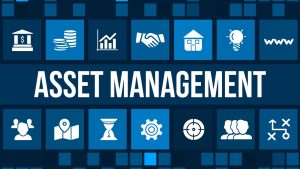If you heard of a teacher who let their students grade their assessment 20 years ago, you would brush it off, thinking it’s a joke. From the beginning of the formal education field, it was believed that assessments and grading are the responsibilities of teachers and only them.
However, in the past few years, self- grading and self-assessment theories are two topics, educators have taken seriously. Self- grading and self- assessment in education have become popular topics. And many teachers around the world do not hesitate to try out regardless of how much of the controversial concepts they are when considering the typical teaching methods.

This is due to the many benefits of self-evaluation for teachers and students. Let’s look at the top 10 benefits of self- assessment and self-grading.
First, let’s have a look at what is self-assessment and self-grading in education.
Self-assessment – Students evaluating their work and learning process
Self-grading – Students grade their assessment and other school work on their own without any involvement of the teacher.
Let’s have a look at the purposes of self-assessment and self- grading and how these concepts can help students in their education.
Asses both knowledge and understanding
Often in schools, students’ ability to regurgitate knowledge is tested rather than their understanding of the lesson or the subject. With self- grading and self -assessment methods, the students will gain a better understanding of how well they have understood the material and the gaps in their knowledge.
Because students won’t be able to do an excellent job in self-assessing their work unless they have a good understanding of the subject, thus, self-assessing and grading in the classroom is an effective way to help students identify their level of understanding and work on areas that need improvements.
1. Help students reflect
When a teacher grades students’ work, only a few students will go back and do the corrections. But when the students have to self- grade their work, they will have the opportunity to identify what they did wrong or where exactly they have misunderstood the lesson or the concept. This will allow them to correct themselves then and there and learn it the correct way as they will be provided with accurate knowledge again regarding the matter during the self-assessing process.
This makes it easy for the children to make corrections, which will increase the number of students who will make corrections in their work.
2. Immediate feedback
When a teacher grades an assessment, it will take two-three days to deliver the grades, depending on the length of the work as the teachers have to go through the work of the whole class.
However, with self-grading, the student gets the opportunity to receive immediate feedback on their work.
They will be able to easily understand what they have missed and what are the errors they have made. Since this can be done, just after they took a test, the students will have better touch with the task, which makes it even more effective to learn from their mistakes, then and there.
3. Promote self-centred learning
Another benefit of self- assessment, and self-grading is that it promotes, self-centred learning. It gives the students more responsibility for their education. The self-assessment method enables students to identify their strengths and weaknesses and help them define their own goals and steps to improve themselves and meet their expected level of achievements in their education.
4. Less work for teachers
Grading student work has made even some teachers cut off the number of assessments given to the students. However, when you adopt self- evaluating methods in your classroom, teachers will no longer have to worry about finding time in their busy schedules to grade the papers.
Although teachers won’t be able to let students grade all their work (like essays), almost 50% of the assessment can be marked using self- grading methods. And this will save a significant number of hours from teachers’ schedules, which they can use to help students in their education.
This will also reduce instances where it takes teachers forever to deliver the grades of students assessment, which might come to appoint where students don’t take completing assessment seriously.
5. Shift attention from grades
With self-grading, the discussion will naturally divert from the grades of students. Rather than the grade they’ve received, the method will take their attention to how they’ve got to where they are, what they have done wrong, etc.
This will also will give students the feeling that they have more control over their grading. This reduces conflicts and arguments with teachers regarding the grades they have received.
Moreover, this will also give the student a better understanding of the grading process.
6. Help keep track of their progress
Studies show that with self- grading, students tend to have a closer look at their grade evolution over time. Since they are doing their own grading, they will be able to monitor their progress in education as well as predict the results for the next assessment or the test and also plan their way to reach their goals in grades.
7. Deeper learning opportunities
With self-assessment, students will gain deeper learning opportunities. They will have to have a good understanding of the lesson as well as of the assessment task. Thus, offering them more opportunities to have a better understanding of the lesson.
8. Another opportunity to learn
Another top benefit of self-evaluating is that it provides another opportunity for the students to learn the subject or the concept. Best college student self-assessment example for this is, when they come across a wrong answer in their assessment, they will have the opportunity to learn what made it wrong and what is the right answer.
9. Develop judgment skills
When evaluating their work, students will be able to develop excellent judgment skills to define their work as good or bad. This will be a skill that will come in handy in many areas of education as well as in their future careers.
10. Opportunities to develop integrity
With self-grading, students will learn to establish honest behaviours as they will understand that cheating during the self- grading process will do no good for themselves in the long run.






